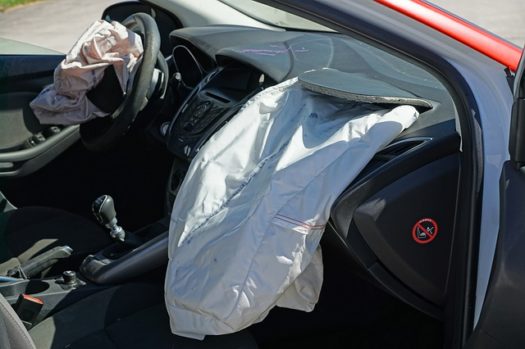
Giving a recorded statement to the at-fault driver’s insurance company is akin to talking to the police before or after an arrest. Everything you say in that situation can and will be used against you in a court of law, and everything you say in a recorded statement has the exact same consequence—your statement can and will be used to prove you were at fault in the accident or that you are not a truthful person. Whatever you say to the insurance company, whether informally or formally, will eventually be used against you.
While you may truly be an honest person who is trying to do the right thing, the goal of the person taking your statement is two-fold: to find out what your “story” will be, and to determine how to twist your words, to make you out to be at fault and/or a liar. Further, if you end up in a lawsuit, the defense counsel will be allowed to use your recorded statement to cross-examine you, either during a deposition or at trial. Perhaps you don’t really remember exactly what you said in that recorded statement, therefore you end up contradicting yourself. While the actual discrepancy may appear inconsequential, the defendant’s lawyer is sure to use such a contradiction to convince the jury you are not a believable person.
To be clear, you do actually have a duty to cooperate with your own insurance company, however that same duty does not exist for the other person’s insurance company. Just what level of cooperation you owe your own insurance company will vary from state to state, depending on whether the state is a no-fault or fault state. Alabama is a “fault” state, meaning the level of responsibility of the drivers involved in the crash will have an effect on how compensation is paid to the injured. Fault states also give those claiming compensation after an accident multiple options, including:
It could be a part of your insurance policy that, if asked, you must provide a recorded statement in order to file a claim, however, in general, your own insurance company is not working against your best interests. Even so, it is still a good idea to speak to your attorney before giving a recorded statement to anyone, even to your own insurance company.
Your obligation ends with your own insurance company, and you do not have any obligation at all to the other driver’s insurance company. They have no power and even less leverage to force you to provide a recorded statement but, they are certainly not going to share that with you. Unfortunately, most people don’t know that they are not required to provide a recorded statement to the other person’s insurance company, so when asked, they (reluctantly) provide that statement. You may find when you contact an attorney, the first question you are asked is whether you provided a recorded statement. This is important to the attorney and will dictate how he or she will move forward with your case.
From the moment a person provides that recorded statement, the insurance company will be hard at work, figuring how to use that statement to either offer you less money in an initial settlement, or to make you look less credible in court. It is also important to remember that all the information the other driver’s insurance company actually needs is on the police report. A police report will include your name, address, phone number, DOB, the type of car you drive, where the accident happened, if you were injured, and may also have a conclusion by the police as to who was at fault in the accident.
In a recorded statement, however, something as innocuous as you saying you were running late for work can result in the company claiming you were driving recklessly because you were late for work. Your reply to the question of whether you have had any surgeries in the past five years can be used to claim your injuries were not a result of the auto accident, rather were pre-existing conditions. When one of your first calls following your motor vehicle accident is to an experienced personal injury attorney, none of these issues with recorded statements can come back to haunt you, because your attorney will talk to the insurance companies for you. Not only does this ensure that nothing you say will be twisted and used against you, it also allows you the time to heal from your injuries while your attorney deals with the legal aspects of your accident.
If you want to ensure you receive the compensation you are entitled to following your automobile accident, and if you want to ensure your rights are fully protected, contact a Martinson & Beason attorney as soon as possible following your car accident. Our attorneys will work hard on your behalf to recover compensation for your injuries, lost wages, pain and suffering and other damages. We will be the advocate in your corner, from start to finish. Contact Martinson & Beason today.